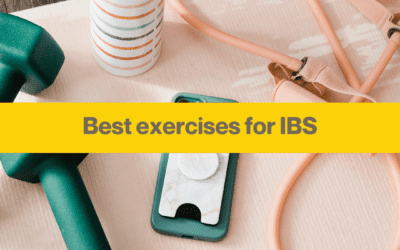Are you struggling to keep awake this morning after a lovely bank holiday weekend? Did you have to drag yourself out of bed for work after a fun weekend? Maybe you have social jet lag.
Changing our patterns of sleep and eating can cause weight gain, increased insulin resistance and stops you performing at your best at work.
When you go back to work after a holiday it can feel very hard to get back into gear.
Some of drag is due to slowing down and relaxing. We often don’t notice how stressed we actually were before, always running at full pelt.
But we also tend to eat later, eat more out of routine, and sleep in different patterns. This plays havoc with our circadian rhythms.
What is jet lag?
Social jet lag is a measure of the discrepancy between our internal clock and our external environment.
So when you stay in bed for an extra two hours on a Sunday morning, or stay up late on Friday night watching tv and eating crisps this change in timing of sleep has an impact.
Eating late at night has been shown to create a significantly worse insulin response to the same food eaten earlier in the day.
What causes social jet lag?
At the weekend we tend to go to bed later, and get up later which messes up our biological clocks.
We are more likely to drink more coffee, more alcohol, and eat later in the evening.
You might think about the clock on the wall but did you know your body has it’s own clock? We have a central body clock in our brain, and peripheral body clocks in cells all around the body that take cues from our behaviour (when we eat, sleep, exercise etc).
Changes in our routine mess up the cues, which impacts on our cortisol patterns, hunger hormones and glucose responses.
What is the impact of social jet lag?
There are a few implications of erratic patterns of sleeping and eating:
- Less sleep – if you are always going to bed at different times you may struggle to get to sleep at night, or wake earlier, so you may get less sleep. Sleep deprivation affects your mental performance, hand eye co-ordination. Sleep deprivation is also linked to increased weight gain, type 2 diabetes and dementia.
- Reduced quality of sleep – we tend to sleep better when we sleep at the same times each day. We also perform better when we’ve had more regular sleep patterns.
- Increased inflammation – some studies have shown when our body clock is out of sync with our environment we can get increased markers of inflammation. And inflammation is linked to chronic health conditions like obesity and heart disease.
- We tend to eat more when we’re tired, and choose food higher in sugary carbs (to keep us going)
Reducing the impact of erratic eating and sleeping
Social jet lag is just like normal travelling delay, it takes a while to recover, and then it’s the weekend again!
You can help to keep your body clock on one time zone with a few simple changes to your weekend routines:
- Eat breakfast when you wake up at the weekends, even if it’s just something small it will help to signal to your body that it’s time to get going. You don’t need a huge breakfast if you don’t feel hungry.
- Go for a walk, getting as much daylight as possible helps to reset our circadian rhythms.
- Eating more of your food earlier in the day and avoiding late night snacking or heavy meals at night
- Keeping to a regular waking up time even at weekends where possible
- Reducing caffeine and alcohol – something we seem to have more of at the weekends!
Conclusion – balance and rhythm
Of course life is all about balance, and it’s important we allow times for socialising and fun. However, keeping to as much of a routine as possible will help your body regulate hormones that affect our metabolism.
One weekend lie-in isn’t going to make you put on weight, or get diabetes, but a sustained chaotic pattern has been shown to have negative effects on our health. Think about how you can manage your body’s health. Small changes can count for a lot.
You can work with me on a personalised nutrition plan to get a diet that suits you and your situations, I can help you figure out what works for you.
Contact me to make time for an initial conversation – info@goodnessme-nutrition.com

Hi I'm Anna Mapson, registered Nutritional Therapist.
I help people with IBS and SIBO get control of unpredictable gut symptoms to find long term relief from painful and embarrassing IBS without restrictive dieting.
I can help you to:
- understand your digestion better, so you recognise your triggers
- eat a well balanced diet, with tasty meals that are simple to prepare
- develop better digestion and more energy
Find more about my 3 month 1:1 Gut Reset programme
Best and worst exercise for IBS sufferers
Fancy A Bit Of Avocardio? Getting regular exercise for IBS is one of the best ways to manage your symptoms. But not all exercises are going to benefit your gut... IBS symptoms can make exercise more challenging, so I’ve outlined the best and worst exercises for IBS to...
Running with IBS – helpful hacks for better exercise
If you have tried running with IBS you may find strenuous exercise can give you diarrhoea, cramps or stomach pains. For those who run long distances you may get caught short with no toilet near you. How does exercise affect IBS? If you have Irritable Bowel Syndrome...
How to lose weight when you’ve got IBS
Are you fed up of trying to lose weight, but feeling frustrated that healthy food trigger your IBS symptoms? It can feel like typical weight loss advice tells you to eat food that makes you feel bloated, gives you stomach pains or send you running to the bathroom. I...




